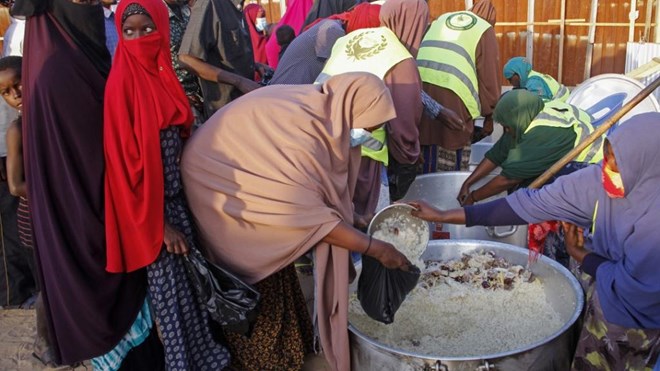The Russian invasion of Ukraine has exacerbated food shortages in many parts of Africa and the Middle East, forcing Muslims to switch to more economical iftar sunset dinners as part of their Ramadan preparations.
In Somalia, Muslims who customarily break their fast with sumptuous family feasts are suddenly finding it difficult to obtain even the most basic necessities due to rising food and fuel prices.
With massive grain-growing regions that are among the world’s main breadbaskets, Russia and Ukraine account for a large share of global exports in numerous major commodities like wheat, vegetable oil, and corn.
Export disruptions have sparked fears of a global hunger catastrophe, particularly in the Middle East and Africa, where the consequences are already being felt.
omalia, which is grappling with an Islamist insurgency and its worst drought in 40 years, is also gearing up for a grim Ramadan as rising prices slash the purchasing power of the 15-million strong population
“The country’s past civil war, political turmoil, election delays, frequent droughts, and rising food prices can have a detrimental impact on the people during Ramadan,” says Adla Nur, a Mogadishu resident. “This Ramadan will be considerably different because food and fuel prices have soared.”
The amount of food donated has decreased.
According to another local, Gallad Mohamed Hassan, the Russia-Ukraine conflict has had a negative impact on the economy, particularly on imported products such as petrol and food.
“In terms of transportation, drivers are charging more because fuel prices are high and food expenses have also increased,” Hassan explains. The population is resigned to a more solemn Ramadan across the country.

